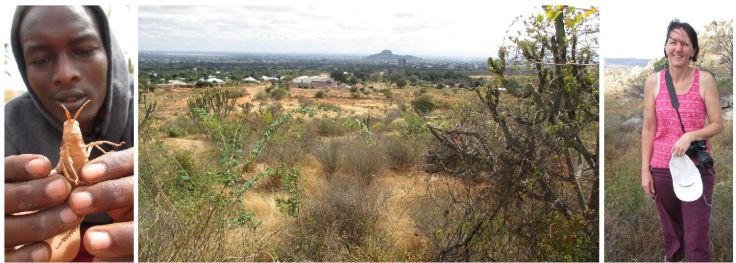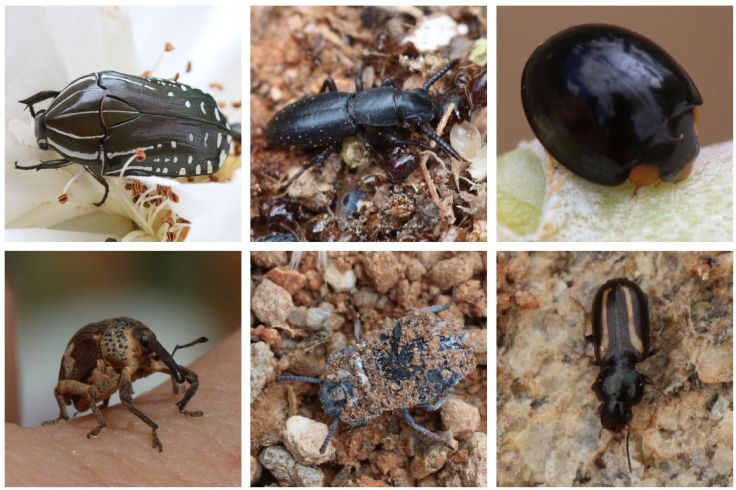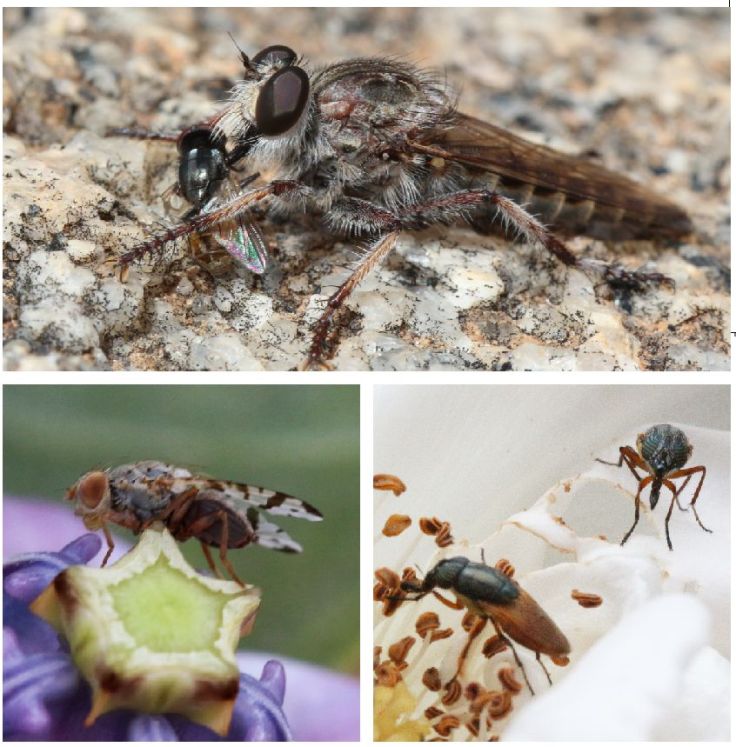
During a quick trip to Tanzania to visit family, I had some free time one day. So I went for a little walk on the outskirts of Dodoma – on the flanks of ‘Antenna Hill’ – to see what I would see. It was a disturbed area, a mosaic of natural vegetation and tiny cultivated fields.
James, my friendly Masai companion, spoke not a word of English but got the idea: we were hunting insects. And there was a lot to see – starting with a staggering abundance and variety of blister beetles. I have never seen so many in once place!

We saw a variety of other beetles, the two in the middle panel were hiding under stones:

It was fascinating to watch an ichneumonid wasp use her long ovipositer (presumably) to inject an egg into a prey she had located hiding inside a flower bud:

There were many different grasshoppers…

…and we kept coming across these fat, slow-moving leaf-mimics, in a range of browns. Whether they were different species or different instars of the same species I do not know.

What else? Bugs:

Some flies, including a largish robber fly with prey:

Some moths and butterflies:

Some smaller insects, such as silverfish, thrips, a mealybug ladybird larva and who knows what:

And of course the promise of things to come or the evidence of things that are (eggs and empty cocoons):

This just shows how, when there’s no time for the Serengeti, wherever you are you can always find some kind of wildlife – however small. I used to say that about birds, but we only saw two of those. Yet in three hours of looking around a bit outside, how many insects did we see? And many of them were species I have never seen before.
Even though I showed James my book, in an attempt to explain what our little outing had been all about, he didn’t really understand why I wanted to take all those photos of insects. They are just… insects, aren’t they? Why would someone want to see insects?
I would really like for people like James to understand how important these little creatures, that we all take for granted, really are. Without them the birds (which he was trying to interest me in) and many other animals, and many plants besides, are doomed.
April 17, 2019 at 02:22
Your pictures are fantastic, thanks for sharing. What lens did you use? I am going to Dodoma in a few weeks so wondering what to pack. Thanks in advance.
LikeLike
April 17, 2019 at 09:35
Thanks for your comment. These days I use a CANON EF 100MM F/2.8 MACRO USM LENS. Before I had a proper macro lens I used the kit lens with a magnifying glass! I’ll blog about that some time.
LikeLike
April 18, 2019 at 07:42
Thanks for getting back. I don’t have room to take my macro with me. I will just have to get creative.
LikeLike